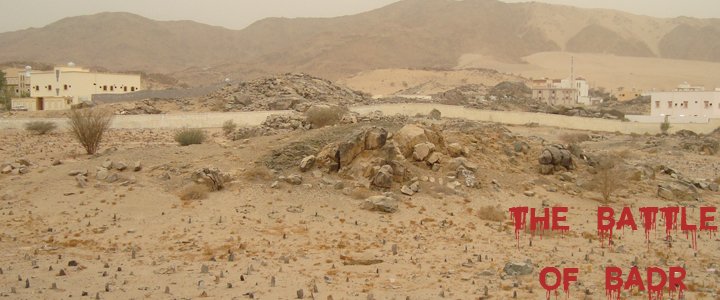*** BATTLE OF BADR ***
The Battle of Badr is one of the most significant battles in Islamic history, taking place on 17th Ramadan, 2 AH (624 CE). It was the first major military confrontation between the Muslims of Medina and the Quraysh of Mecca and is considered a turning point for the early Muslim community.

Key Points about the Battle of Badr :
Background :
After the Hijrah (migration) to Medina, tensions between the Muslims and the Quraysh of Mecca
continued
to grow.
The Quraysh aimed to crush the Muslims, while the Prophet Muhammad (peace be upon him) sought to
protect
the growing Islamic community.
A caravan led by Abu Sufyan, a prominent Quraysh leader, was passing near Medina, and the Muslims
planned to intercept it, not for battle but as a strategic measure.
Location :
The battle took place near Badr, a valley situated between Mecca and Medina, known for its water
wells.
It was a strategic location for the Muslims, providing access to water, which was vital in the
desert
setting.
Forces :
The Muslim army consisted of about 313 soldiers, including a few horses and camels, with limited
weaponry.
The Quraysh army was much larger, with around 1,000 soldiers, equipped with better weaponry and
horses.
Events of the Battle :
The Prophet Muhammad (peace be upon him) prayed earnestly for victory, seeking Allah’s help for the
outnumbered Muslim force.
The Muslims took control of the water wells, giving them a strategic advantage.
The battle began with a duel between warriors from both sides, and then the main clash ensued.
Despite being outnumbered, the Muslims fought with great determination and faith. According to
Islamic
belief, angels were sent by Allah to aid the Muslims during the battle.
Outcome :
The Muslims achieved a decisive victory, with around 70 Quraysh soldiers killed and 70 captured.
14 Muslims were martyred.
The Quraysh suffered a significant loss, including the death of several key leaders.
Significance :
The victory at Badr strengthened the morale of the Muslims and confirmed their belief in divine
support.
It established the Muslim community's presence in the region and earned them respect among the
tribes.
The battle also served as a warning to the Quraysh that the Muslims were a force to be reckoned
with.
Quranic Reference :
The Battle of Badr is mentioned in the Quran in Surah Al-Anfal, which highlights the lessons and
significance of the victory. It emphasizes faith, perseverance, and the help of Allah for the
believers.
The Battle of Badr remains a symbol of faith, courage, and divine support in Islamic history. It is
celebrated for how a smaller, less equipped group of believers overcame a larger, better-prepared
enemy,
setting a precedent for the later spread of Islam.


